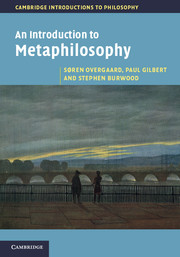6 - Philosophy and the pursuit of truth
Published online by Cambridge University Press: 05 March 2013
Summary
Introduction
What sort of results can we expect from the activity of discussion and criticism that typifies philosophy? Philosophy, as we have seen in previous chapters, cannot easily be thought of as the same sort of cumulative discipline as mathematics and the developed sciences. It has not laid down, as yet at least, a body of statements whose truth is widely accepted and upon which other truths can be built. This should lead us to wonder about the status of philosophical claims. On the face of it they look like statements to be assessed for their truth or falsity, to be believed or disbelieved on the basis of the arguments for and against them. But appearances can be deceptive, and perhaps even this natural assumption should be questioned.
Not all statements that look like truth claims need to be interpreted as such. For example, the emotive theory of ethics asserts that moral judgements are not literally true or false because they do not state moral facts but function instead to express and elicit emotions of moral approval or disapproval. A speaker at philosophy conference was once heard to declare that, although few theses in the subject had been firmly established, one that had been was, indeed, the emotive theory of ethics. Since this was, after all, a philosophy conference, the speaker’s claim was immediately challenged by members of the audience, some denying the truth of the emotive theory outright, others denying that it was firmly established. No one at the time denied that the emotive theory itself was the sort of thing that could be literally true or false, a fact or not a fact, in the way that this theory denies that moral judgements are, and denies that they are because it can allow no room for moral facts in a world constituted by physical facts.
- Type
- Chapter
- Information
- An Introduction to Metaphilosophy , pp. 136 - 161Publisher: Cambridge University PressPrint publication year: 2013

